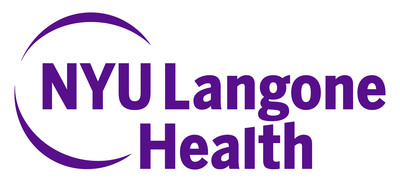Subjects: NPT, SVY
Study Pinpoints Five Most Likely Causes of Post-Traumatic Stress in Police Officers
NEW YORK, Aug. 10, 2020 /PRNewswire/ -- A combination of genetic and emotional differences may lead to post-traumatic stress (PTS) in police officers, a new study finds.
Based on biological studies of officers in major cities, the study showed that the most significant PTS predictors are the tendency to startle at sudden sounds, early career displays of mental health symptoms (e.g., anxiety and depression), and certain genetic differences, including some known to influence a person's immune system.
"If we can identify major risk factors that cause PTS and treat them before they have the chance to develop into full-blown post-traumatic stress disorder, or PTSD, we can improve the quality of life for police officers and perhaps other emergency responders, and better help them deal with the stressors of their work," says senior study author Charles Marmar, MD, the Lucius N. Littauer Professor of Psychiatry at NYU Grossman School of Medicine.
Publishing online Aug. 10 in the journal Translational Psychiatry, the study authors employed a mathematical computer program developed by scientists at NYU Langone Health and the University of Minnesota. They used a combination of statistical analyses to test which of a large number of features linked by past studies to PTSD were the best at predicting its occurrence in police officers.
Some of this winnowing that determined the best predictors was accomplished using machine learning, mathematical models trained with data to find patterns. These algorithms enabled researchers to track how experiences, situations, and characteristics may have interacted over time to lead to PTS symptoms, and represent the first use of such techniques in PTS research in police officers, the authors say.
"Based on these techniques, our study identified specific causes of PTS, rather than possible links," says Marmar, also chair of the Department of Psychiatry at NYU Langone.
He adds that the need for better information is urgent. An estimated eight out of every 100 people experience PTS in their lifetimes, according to the National Institute of Mental Health. Police officers are particularly vulnerable, he says, facing an average of three traumatic experiences for every sixth months of service. Common symptoms include nightmares, aggression, and distressing flashbacks of the traumatic event, which can lead to poor sleep, anxiety, depression, and increased risk of suicide.
In the new study, the investigators analyzed data collected on 207 police officers from departments in New York City, San Francisco, Oakland, and San Jose who had PTS. All officers had experienced at least one life-threatening event during their first year on the job.
Using the computer program, the investigators searched for patterns in 148 different characteristics previously thought to be involved in PTS. They mapped out 83 different possible combinations of factors, or pathways, which could have influenced the officers as they developed the condition.
Then, they identified factors which appeared most frequently, and found that every pathway to PTS shared one of five causes. Besides the tendency to startle easily, severe distress following a traumatic experience, and a set of emotional health problems, such as anxiety and depression, played a key role in PTS. Genetic causes included mutations in the HDC gene, which is linked to problems in the immune system and mutations in the MR gene, which is involved in the body's immediate reaction to threats, known as the fight-or-flight response. If all five factors were eliminated, researchers say, the officers would not be expected to develop PTS.
"Because the factors we identified are causal, they should be actionable as well," says lead study investigator Glenn Saxe, MD, a professor in NYU Langone's Department of Child and Adolescent Psychiatry. "Several of the causal factors we identified ? the HDC gene, the MR gene, and the startle response ? point to well-mapped nerve circuits, which should allow us to find drugs and behavioral therapies that might help. Down the road, we see the possibility of using information collected from patients about causal factors to select the interventions that would provide the most benefit to them."
Saxe says other future interventions might target factors that may not cause PTS on their own, but frequently contribute to its development. For example, the study found that difficulty adjusting to work contributed to PTS development in 60 percent of the causal pathways. Therefore, a straightforward solution, like giving more support to new police officers who are having difficulty adjusting to police work, may reduce their risk of getting PTS, according to Saxe.
Moving forward, the researchers plan to apply the same algorithm technique in a much larger group of traumatized adults and children, focusing on a more extensive set of characteristics and experiences.
Funding for the study was provided by National Institute of Mental Health grant R01 MH056350 and Substance Abuse and Mental Health Services Administration grants U79 SM080049 and U79 SM080013.
In addition to Marmar and Saxe, other NYU Langone researchers include Leah J. Morales, BS; and Isaac Galatzer-Levy, PhD. Other study authors are Sisi Ma, PhD; and Constantin Aliferis, MD PhD, at the University of Minnesota in Minneapolis.
Media Inquiries
Shira Polan
212-404-4279
[email protected]
SOURCE NYU Langone Health
These press releases may also interest you
|
News published on and distributed by:




